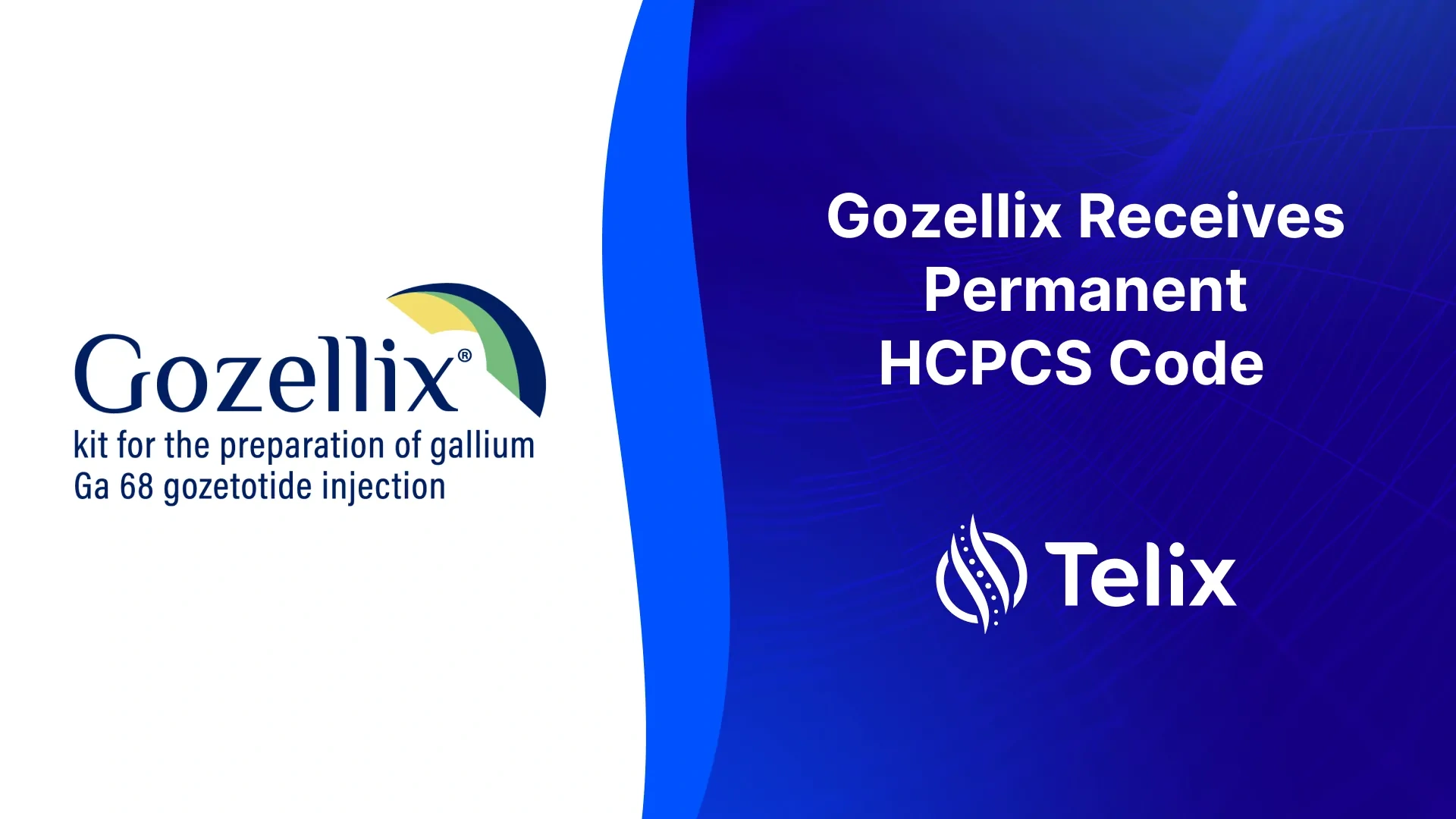Healthcare providers across America will soon benefit from enhanced Medicare reimbursement after the Centers for Medicare & Medicaid Services (CMS) granted transitional pass-through status for Gozellix, Telix Pharmaceuticals’ cutting-edge prostate cancer imaging agent.
The TPT designation, effective from 1 October 2025, enables separate reimbursement for Gozellix under the Hospital Outpatient Prospective Payment System (HOPPS). This regulatory milestone positions the Melbourne-based company to dramatically expand patient access to precision cancer diagnostics nationwide.
Game-Changing Reimbursement Framework Takes Effect
The transitional pass-through framework represents a critical pathway for innovative medical technologies to secure Medicare coverage. Unlike standard reimbursement models, TPT status provides additional payment for new devices and medications while CMS gathers comprehensive cost data over 2-3 years.
Notably, patients will not be subject to the 20% patient coinsurance under TPT, removing a significant financial barrier that often delays or prevents life-saving diagnostic procedures.
This decision builds on Gozellix’s earlier regulatory success. Effective from 1 October 2025, CMS and commercial health insurers will recognise the HCPCS Level II code A9616 assigned for reimbursement of Gozellix, ensuring comprehensive coverage across both public and private healthcare systems.

Gozelix was granted a permanent Healthcare Common Procedure Coding System (HCPCS) code
Revolutionary Technology Addresses Critical Distribution Gaps
Gozellix stands apart from competing imaging agents through its extended operational capabilities. The novel imaging agent offers a longer shelf life of up to six hours and an extended distribution radius compared to existing gallium-based products, helping to overcome logistical barriers that have historically limited access to PSMA-PET imaging.
Industry data suggests this technological advancement could prove transformative for underserved regions. Telix estimates that up to 20% of PET cameras in the U.S. are beyond the reach of currently available PSMA-PET imaging agents due to distribution efficiency constraints.
Key Technical Advantages:
- Six-hour shelf life vs. competitors’ shorter windows
- Extended distribution range from production facilities
- Dual production flexibility (cyclotron or generator-based)
- Enhanced scheduling options for healthcare providers
Prostate Cancer Imaging Market Experiences Rapid Evolution
The approval comes amid surging demand for precision diagnostic tools in oncology. Prostate cancer remains the second most common cancer in men globally, with approximately 300,000 new cases diagnosed annually in the United States alone.
Gozellix, after radiolabelling with Ga, is indicated for PET scanning of PSMA positive lesions in men with prostate cancer who are suspected of metastasis and are candidates for initial definitive therapy, and those with suspected biochemical recurrence (BCR) based on elevated serum prostate-specific antigen (PSA) level.
Traditional imaging methods often struggle to detect small metastatic lesions, leading to delayed treatment decisions. PSMA-PET technology offers superior sensitivity and specificity, enabling earlier intervention and improved patient outcomes.
Executive Leadership Highlights Strategic Impact
Kevin Richardson, Chief Executive Officer, Precision Medicine, Telix, stated that the granting of TPT status for Gozellix is a strong endorsement of the technology’s clinical value and commercial potential.

Kevin Richardson, Chief Executive Officer, Telix Precision Medicine
The company’s broader strategy focuses on theranostic applications – combining diagnostic imaging with targeted therapeutic interventions. This integrated approach represents the future of personalised cancer medicine, where treatment decisions are guided by precise molecular imaging.
Financial Implications and Market Outlook
CMS transitional pass-through status typically indicates strong confidence in a technology’s clinical utility and cost-effectiveness. The designation provides predictable reimbursement pathways that often accelerate adoption among healthcare providers.
For Telix Pharmaceuticals, this approval strengthens its competitive position in the rapidly expanding radiopharmaceutical sector. The company has established global operations across multiple continents, with manufacturing and distribution networks designed to support large-scale commercialisation.
The timing aligns with broader healthcare trends emphasising value-based care and precision medicine approaches. As healthcare systems worldwide grapple with rising cancer incidence and treatment costs, diagnostic tools that enable earlier, more targeted interventions become increasingly valuable.
Enhanced Patient Access Across Geographic Regions
Rural and remote healthcare facilities will particularly benefit from Gozellix’s extended distribution capabilities. Many regional cancer centres currently lack access to short-lived imaging agents due to logistical constraints and limited local production capacity.
The six-hour shelf life enables transportation to facilities previously unable to offer PSMA-PET imaging, potentially bringing advanced diagnostics to thousands of additional patients annually.
Strategic Positioning for Future Growth
This regulatory milestone positions Telix Pharmaceuticals to capitalise on growing demand for precision cancer diagnostics. The company’s focus on radiopharmaceutical solutions addresses critical unmet needs in oncology, where early detection and precise staging drive treatment success.
Healthcare systems increasingly recognise the economic value of diagnostic tools that enable more targeted, cost-effective treatment pathways. By reducing uncertainty in cancer staging and treatment planning, advanced imaging technologies like Gozellix can improve both patient outcomes and resource utilisation.
Also Read: Trump Shakes Up Justice Department with Controversial Virginia Prosecutor Pick
The CMS decision validates Telix’s strategic focus on bringing innovative diagnostic solutions to market through established regulatory pathways. As the company continues expanding its radiopharmaceutical portfolio, this precedent strengthens its position for future product approvals and market access initiatives.
FAQ
1.What is transitional pass-through status?
Transitional pass-through status provides additional Medicare reimbursement for innovative medical technologies while CMS collects cost data over 2-3 years. It eliminates patient coinsurance requirements and ensures separate payment beyond standard procedure fees.
2.How does Gozellix differ from existing prostate imaging agents?
Gozellix offers a six-hour shelf life compared to shorter windows for competing products, enabling extended distribution and greater scheduling flexibility for healthcare providers and patients.
3.When will the new reimbursement take effect?
Both the HCPCS code A9616 and transitional pass-through status become effective October 1, 2025, providing immediate benefits for healthcare providers and patients.












